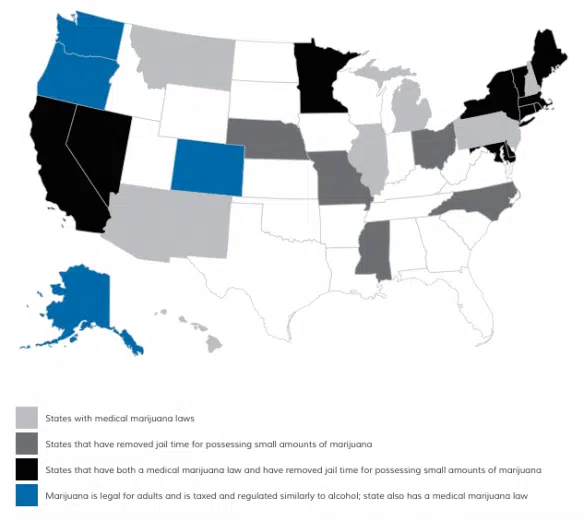Governor, John Kasich, signed a law creating a strictly regulated medical marijuana program for the state of Ohio.
Ohio Governor John Kasich’s communications team quietly announced the signing by including it in a list with several other bills signed by the Kasich.
House Bill 523 was introduced April 14 and swiftly moved through the Statehouse with several changes along the way, clearing both chambers on May 25. The new law goes into effect 90 days after the bill is officially filed with the secretary of state, making the marijuana legal sometime in early September.
Patients will have an “affirmative defense” against prosecution for marijuana possession charges if they have written permission from their doctor to use marijuana in a form allowed under the law. It could be a year or more until Ohioans can walk into a dispensary and buy medical marijuana.
Kasich forewent a public signing ceremony, opting to ink the bill with dozens of others late Wednesday afternoon.
Ohio’s medical marijuana program is strict, regulated
Ohio is the 25th state to pass a comprehensive medical marijuana program, according to the National Conference of State Legislatures. The Ohio law prohibits smoking or growing marijuana at home but allows cannabis oils, tinctures, patches and plant material to be used and sold in state-licensed dispensaries.
The program will be regulated by the Ohio State Pharmacy Board, State Medical Board and Department of Commerce. A 14-member advisory board including pro-medical marijuana members would recommend rules to the three regulatory agencies.
Ohio residents will be able to use medical marijuana under the law for the following, state approved conditions:
- HIV/AIDS
- amyotrophic lateral sclerosis (ALS)
- Alzheimer’s disease
- cancer
- chronic traumatic encephalopathy (CTE)
- Crohn’s disease
- epilepsy or another seizure disorder
- fibromyalgia
- glaucoma
- hepatitis C
- inflammatory bowel disease
- multiple sclerosis
- pain management that is either chronic, severe or described as intractable
- Parkinson’s disease
- PTSD post-traumatic stress disorder
- sickle cell anemia
- spinal cord disease or injury
- Tourette’s syndrome
- TBI traumatic brain injury
- ulcerative colitis.



